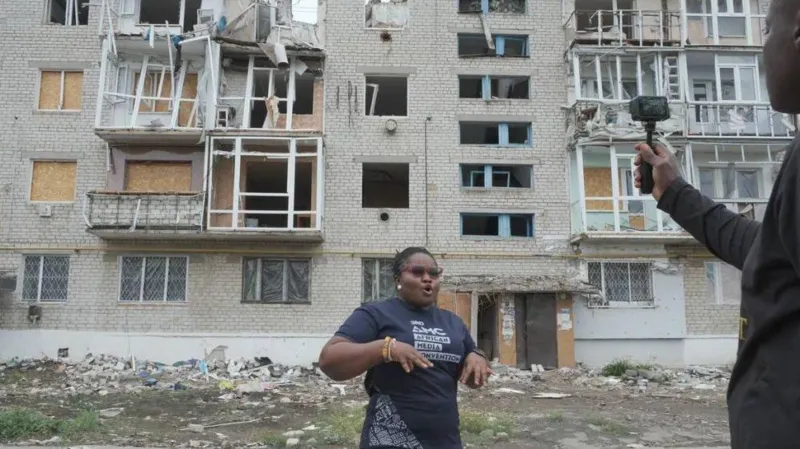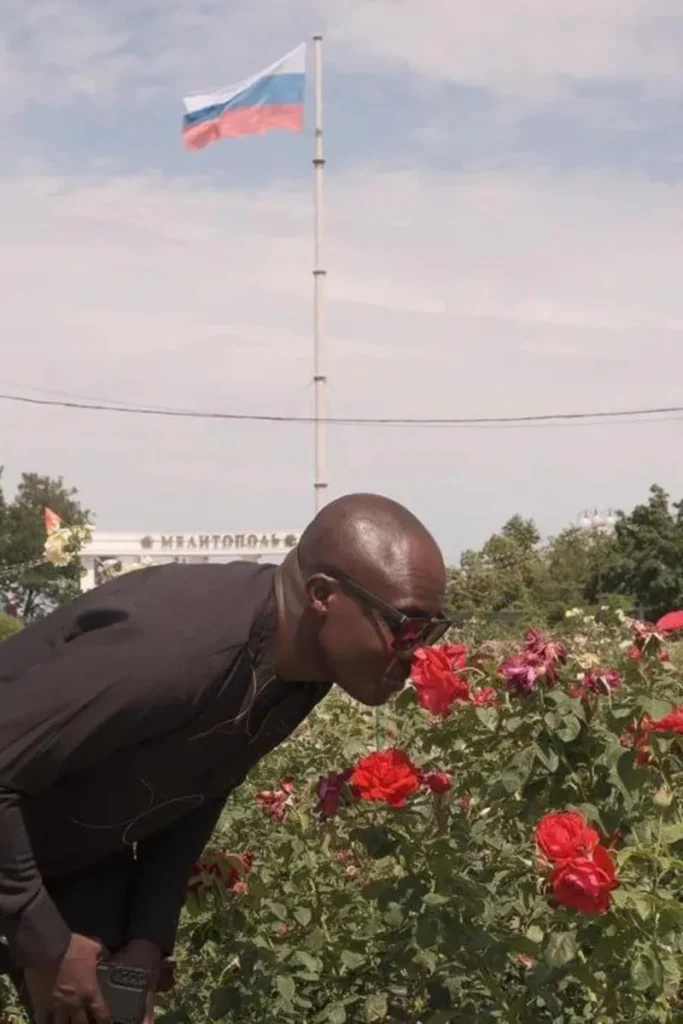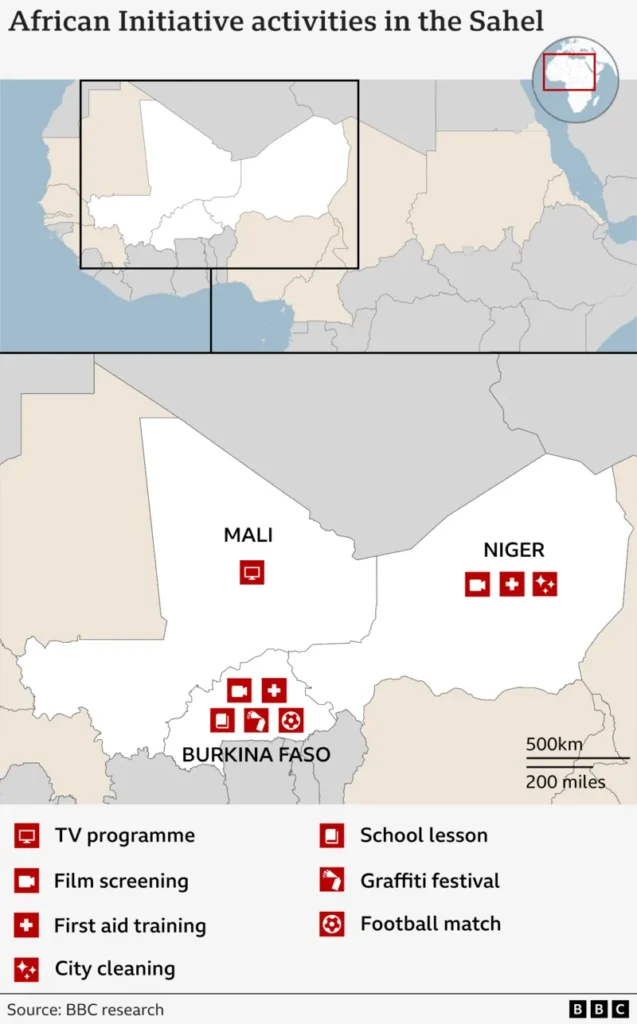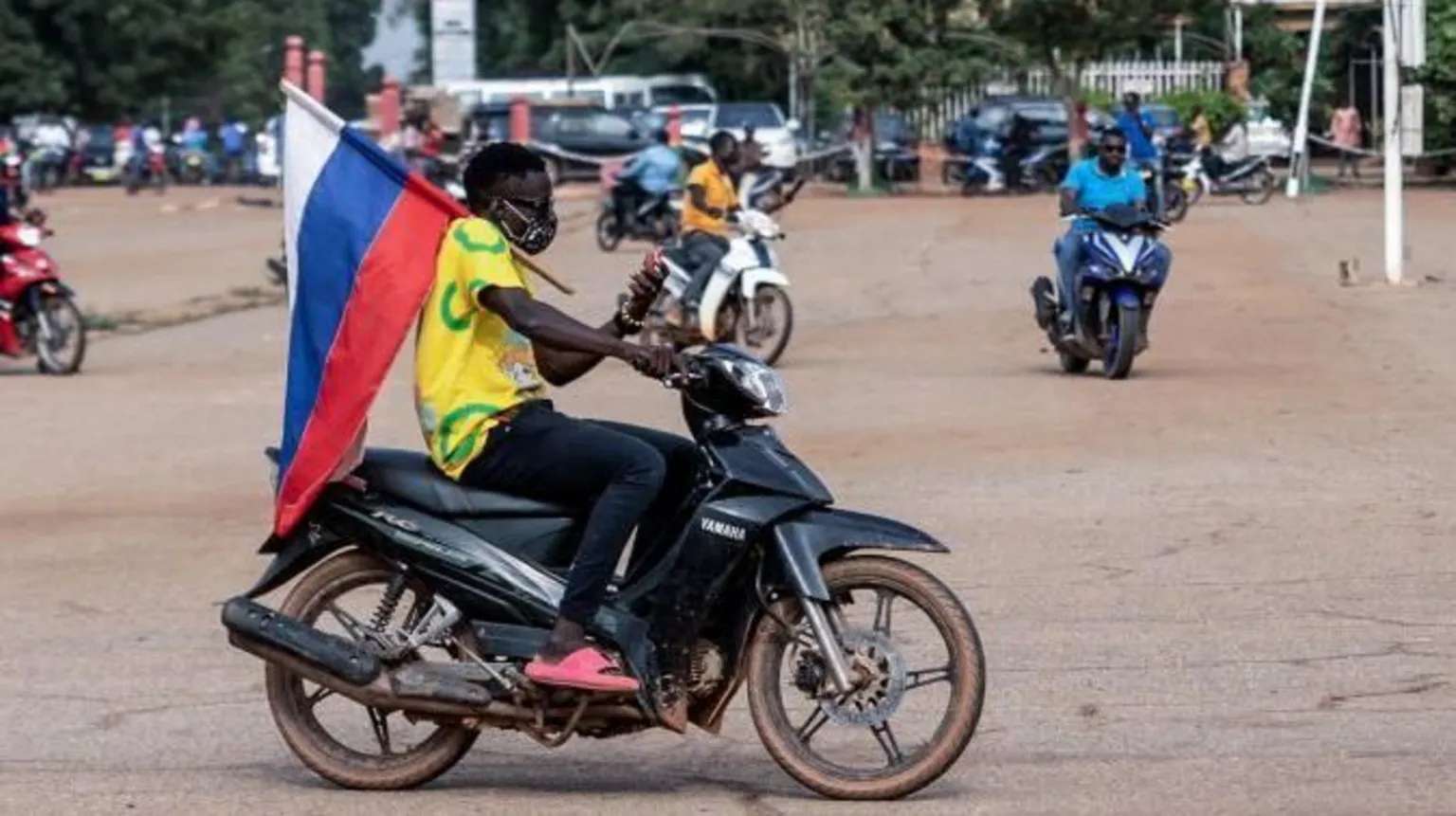In recent years, Russia has been actively expanding its presence in Africa through a multifaceted approach combining media outreach, cultural initiatives, and strategic partnerships. This effort is particularly evident in Burkina Faso, where Russian influence is increasingly visible through a variety of activities aimed at gaining a foothold in the region.
A New Face for Russian Influence
One of the key players in this expansion is the African Initiative, a newly established Russian media organization that aims to act as a bridge between Russia and Africa. Established in September 2023, just a month after the death of Wagner leader Yevgeny Prigozhin, the African Initiative has taken control of structures previously established by the now defunct Wagner Group. Experts believe the organization has ties to Russian security services, making it a key player in Russia’s influence campaign.
The African Initiative’s activities are primarily focused on Mali, Niger and Burkina Faso – three West African countries where recent military coups have distanced Western allies, such as France, and forged closer ties with Russia. These countries have criticized Western interventions against jihadist groups and are now seeking new partnerships.

Cultural diplomacy and media outreach
Russian influence in Burkina Faso and other parts of Africa is evident through a variety of cultural and media initiatives. The African Initiative is actively promoting Russian culture and perspectives by hosting a variety of events. These include soccer matches where the Russian national anthem is played, graffiti festivals featuring portraits of Russian President Vladimir Putin, and educational programs about Russia.
The organization maintains a strong online presence with a news website available in several languages, including Russian, English, French and Arabic. It also operates several Telegram channels, one of which has nearly 60,000 subscribers. Some of these channels were re-created from old channels linked to Wagner, further demonstrating a continuation of the previous government’s strategy.
Russian narratives and disinformation are prevalent on these platforms. For example, the Africa Initiative’s website promotes unfounded claims that the United States is using Africa as a testing ground for bioweapons. This is reminiscent of the Kremlin’s long-running disinformation campaigns and serves to undermine trust in Western institutions.
Press tours and strategic messaging
One of the more controversial methods used by Russia to influence African perceptions is through organized press tours. In June, a group of journalists from eight African countries were invited on a seven-day tour of Russian-occupied territories in Ukraine. The trip was organized by Russian state media and was intended to present the Kremlin’s narrative about the conflict in Ukraine.
During the tour, the journalists visited occupied cities such as Mariupol and Zaporizhzhia, where they were accompanied by Russian officers and military personnel. These guided tours are a strategic tool for Russia, allowing them to present their version of events in a way that seems more authentic when reported by African journalists.
This approach is not unique to Russia; China employs similar tactics to present its own perspective. However, using African journalists for such purposes adds a layer of credibility that may be less evident when Western media covers the same topics.
Community outreach and local engagement
Beyond media and press tours, Russian influence extends to the grassroots through community outreach. In Burkina Faso, the African Initiative sponsors a variety of local events aimed at fostering goodwill and promoting a positive image of Russia. These include soccer tournaments, educational sessions about Russia, and cultural festivals featuring Soviet-era martial arts.

These activities are not just about soft power; they also serve to integrate Russian influence into the daily lives of local people. Reports from Burkina Faso highlight how Russian officials are involved in distributing groceries, organizing first aid workshops, and even sponsoring neighborhood screenings of documentaries produced by Wagner.
The role of key figures
The African Initiative’s operations in Africa are linked to several prominent figures connected to the Russian government. Artem Kureyev, the head and editor-in-chief of the African Initiative, is identified as an agent of the Russian Federal Security Service and is associated with the Valdai Club, a think-tank closely linked to President Vladimir Putin. Another key figure, Anna Zamareva, a former press officer for Wagner, serves as deputy editor-in-chief.

These ties underscore the continuity of Russian efforts to influence African countries, building on Wagner’s legacy while adapting to new circumstances. The involvement of individuals with backgrounds in intelligence and propaganda has brought a sophisticated vision to shape public opinion.
